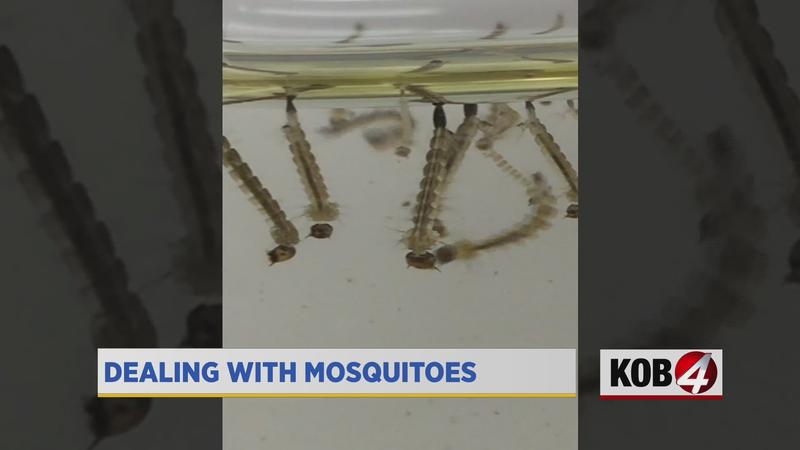Dealing with mosquitoes after an active monsoon season
[anvplayer video=”5054687″ station=”998127″]
ALBUQUERQUE – As New Mexico is experiencing heavy rainfall during monsoon season, it is no surprise that the state is seeing an uptick in mosquitoes.
According to Ivy Hurwitz, an infectious disease expert, it only takes a bottle cap of water for mosquitoes to lay hundreds of eggs.
"When the rains come, we get puddles, the rains collect in little containers that the mosquitoes go into and they start laying their eggs," Hurwitz explained. "Within a week or so, you will have adult mosquitoes flying around and I think that’s what we’re all getting bitten by are all these newly-hatched mosquitoes."
Now, as the weather dries up over the next few days, it is a good time to get rid of any standing water. Whether it is a clogged gutter, a birdbath, old tires lying around, or a leaky faucet, all of these are breeding sites for mosquitoes.
Some mosquito eggs can even be dehydrated for a year and then hatch after being rehydrated, such as during a rain shower.

After clearing out these areas, Hurwitz recommends wearing protection, such as repellant with DEET or wearing long-sleeved clothing, or even staying inside, to prevent being bitten.
Last month, Bernalillo County reported its first West Nile virus detection within mosquitoes they collected. However, only certain species carry the virus and even for those that do, severe virus symptoms, such as high fever, tremors and intense stiffness, are rare.
"I would say maybe 80% of people will not show any symptoms," Hurwitz explained. "One-in-five or so will have a fever, body aches, headache, joint pains, which are very typical flu-like symptoms if you want to call it that. Then less than 1% of these people will develop severe symptoms, high fever and they may need to be hospitalized as it can progress to be a deadly infection. However, it’s a small population."